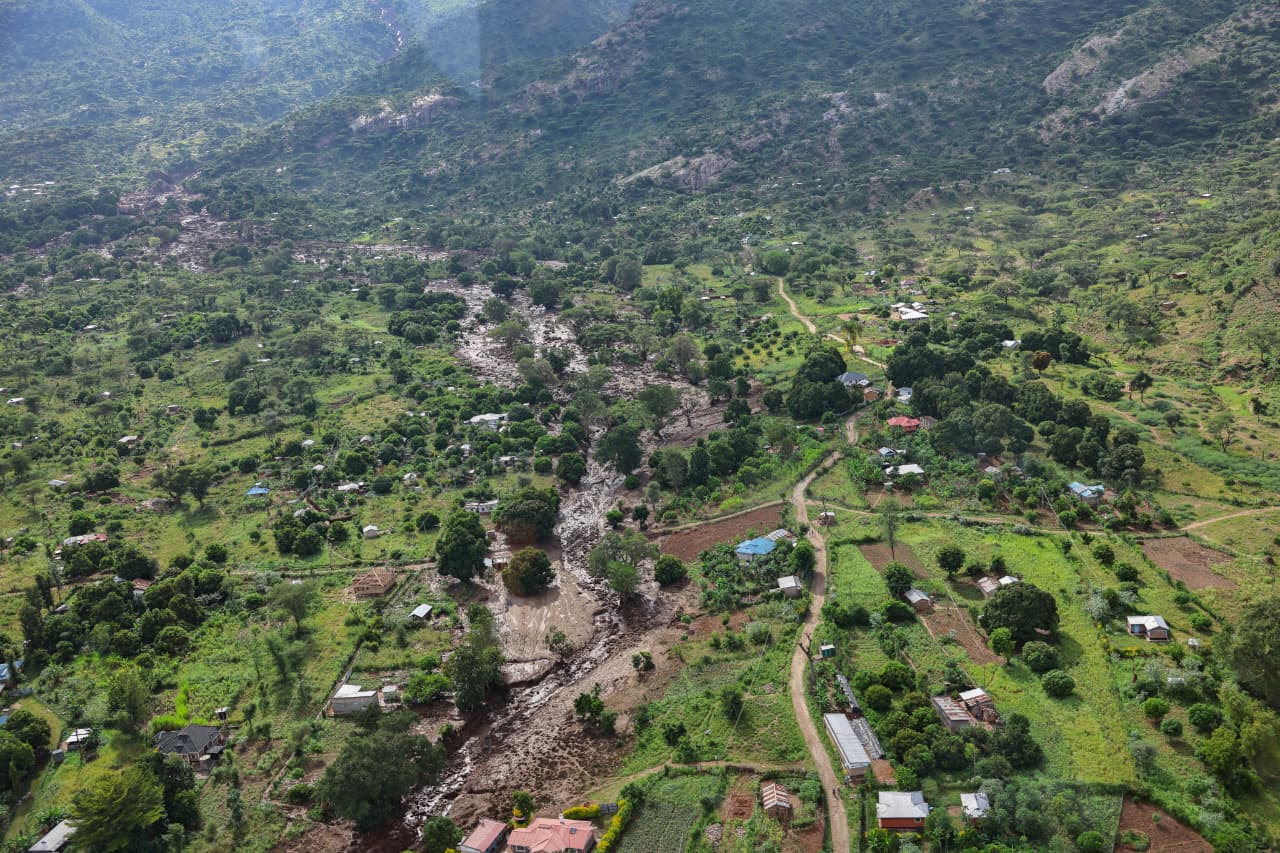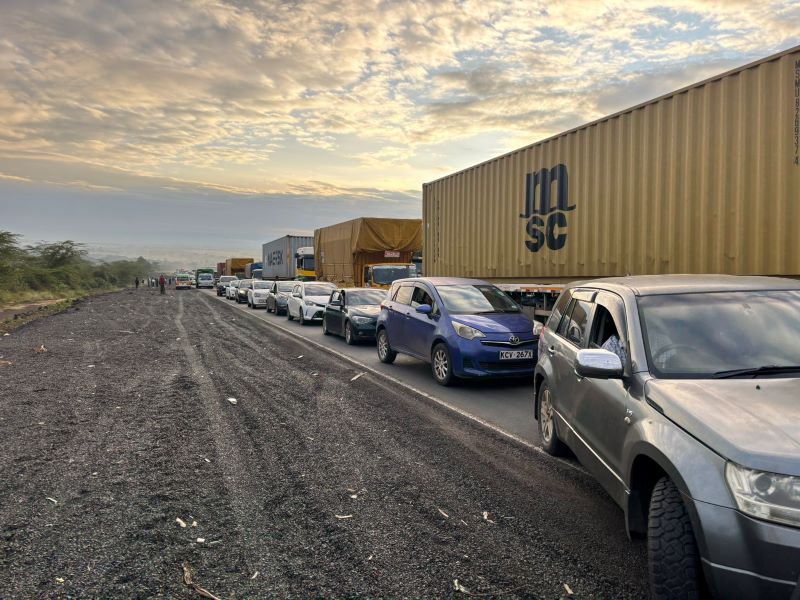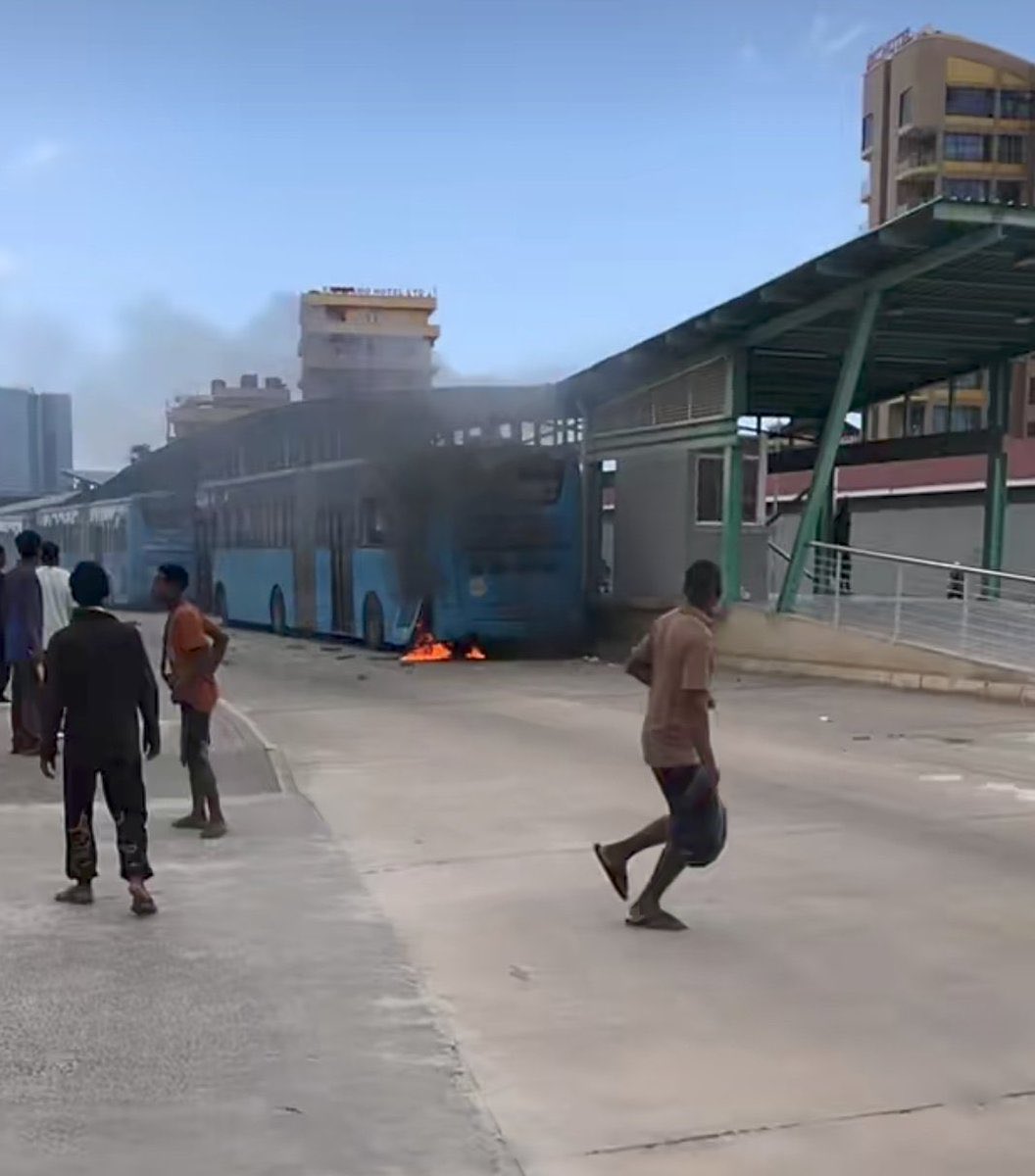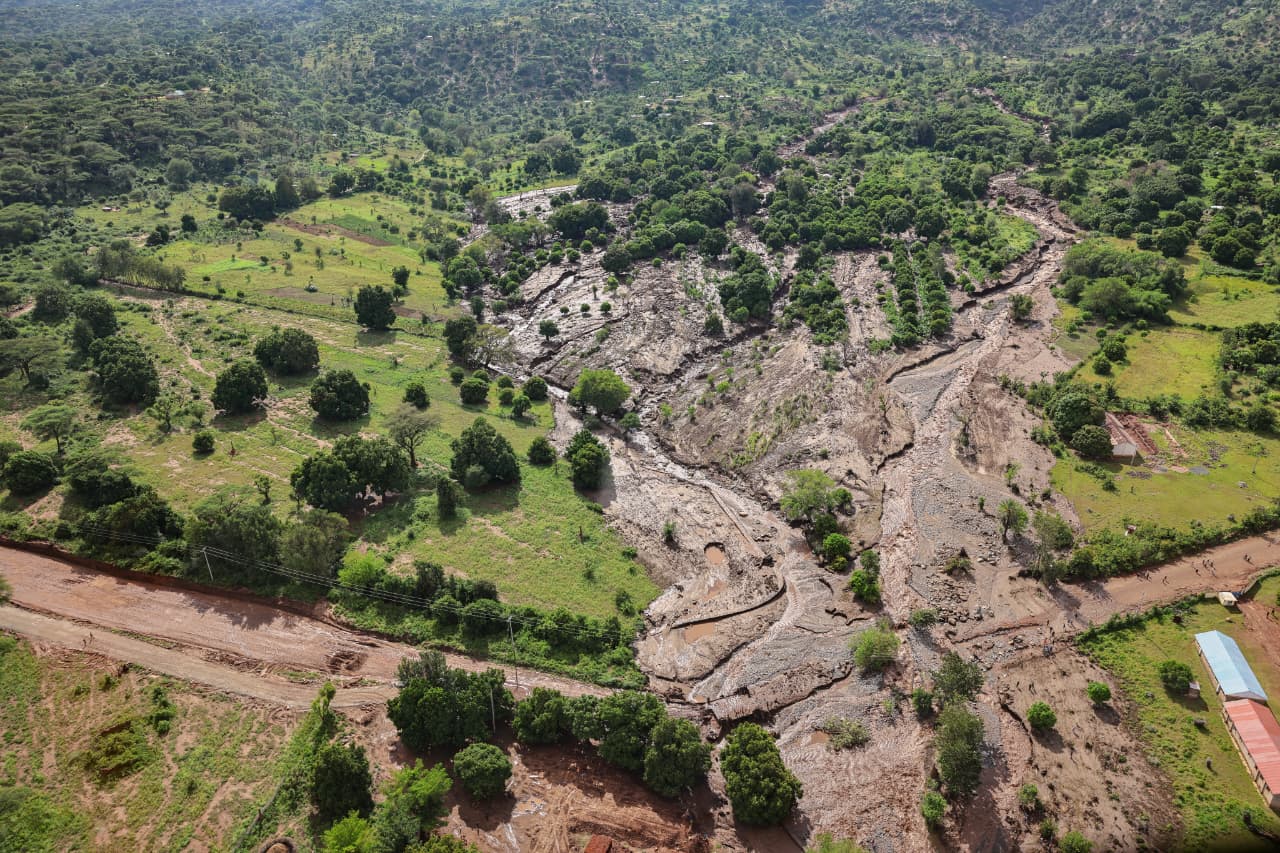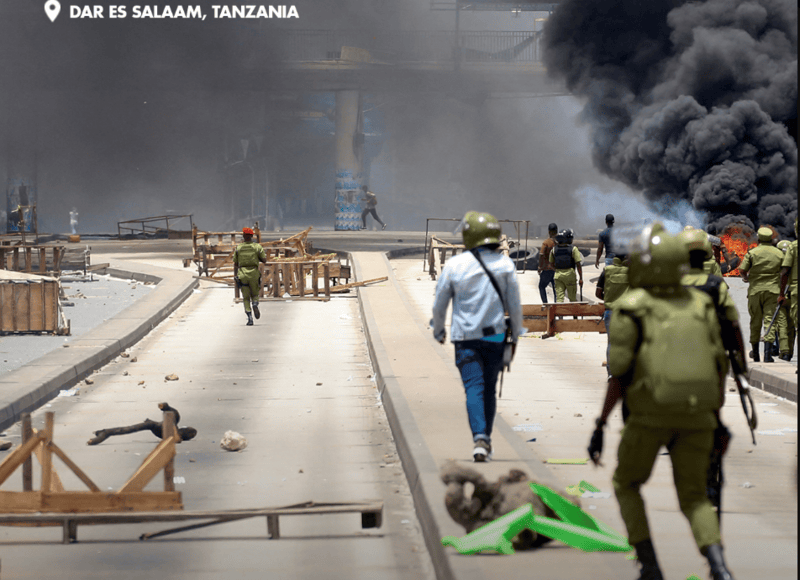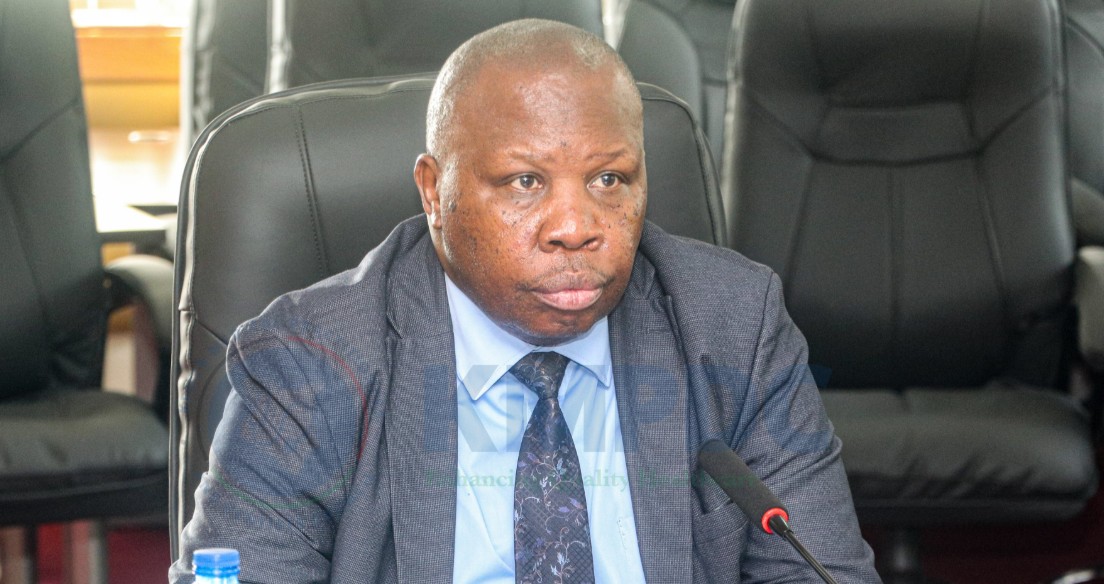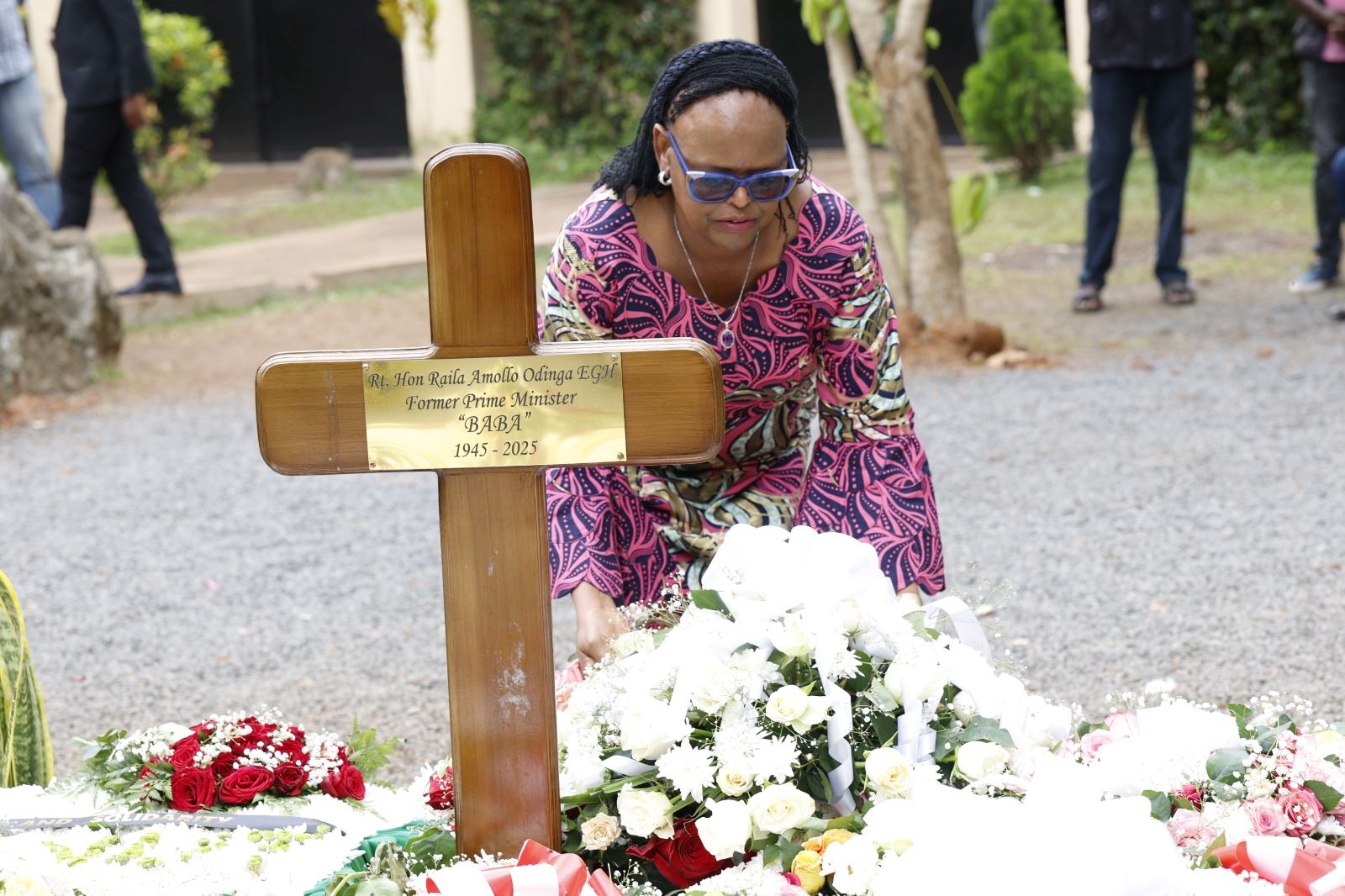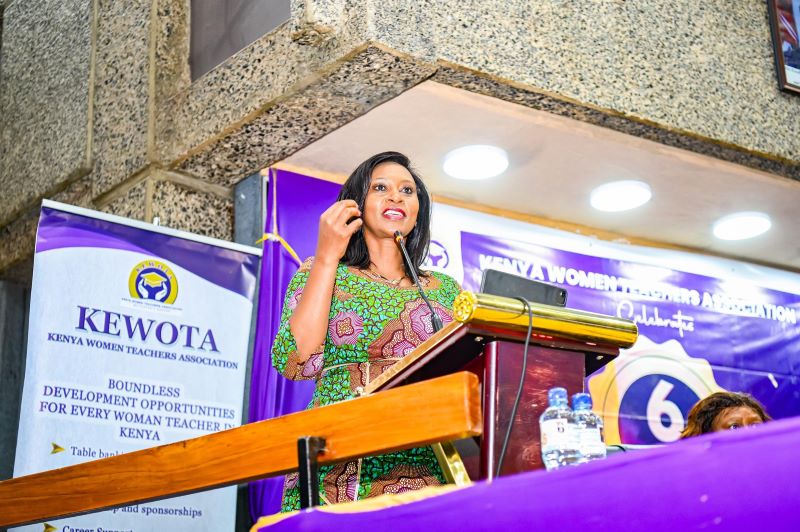Africa Confidential: Youth revolt wins after Ruto scraps finance bill and pledges talks
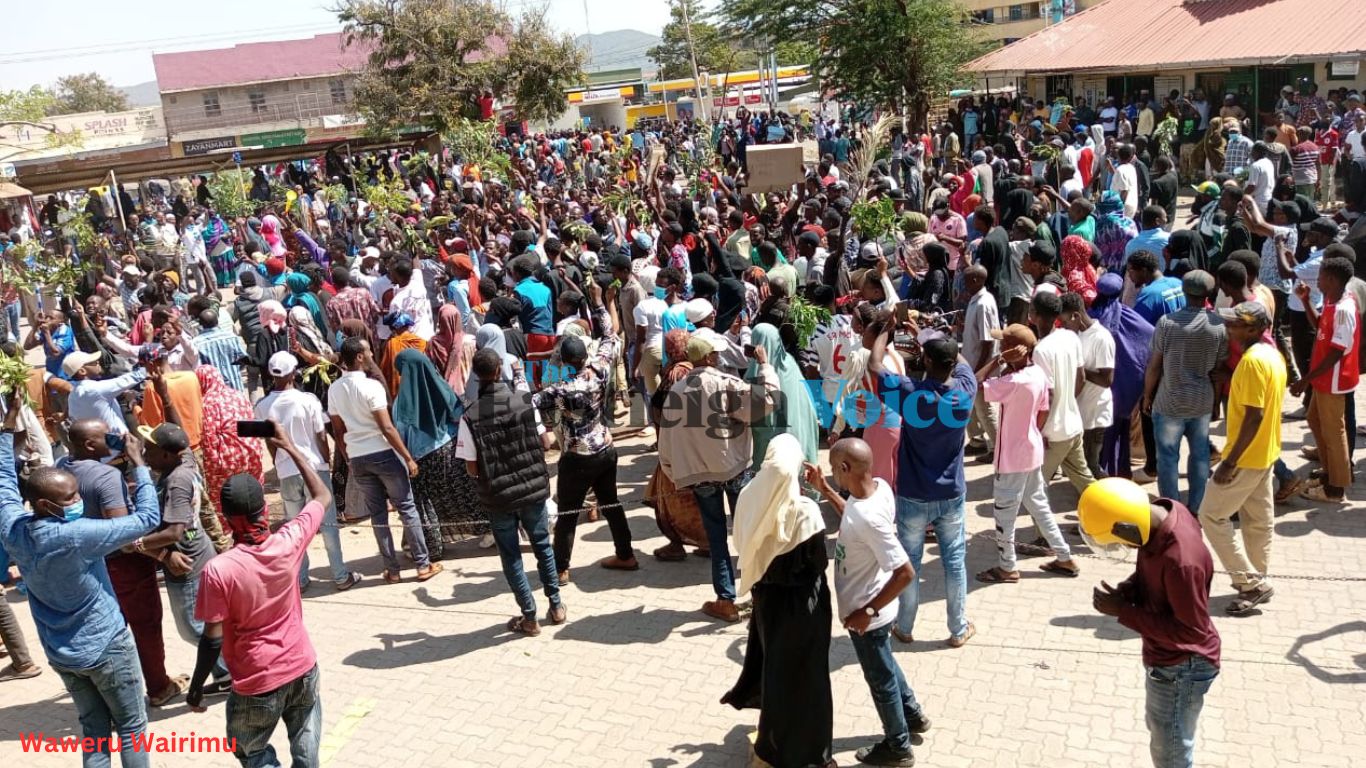
"With opposition leader Raila and his Azimio party neutered, at least in part, by Raila’s reliance on the government for diplomatic support to secure him the chair of the AUC, the youth protests may mark the biggest political challenge to Ruto’s presidency.
Africa Confidential's statement on anti-Finance Bill protests:
Government backs down over tax hikes but is accused of killing over 20 protestors after hundreds of thousands took to the streets
In response to the biggest national protest for decades – activists marched in 35 out of Kenya’s 47 counties – President William Ruto announced on June 26 that he had rejected the latest version of the finance bill with an extra US$2.3 billion (Sh2.9 trillion) of tax hikes. It was those tax hikes, that the government claimed were necessary to meet the fiscal targets of its IMF programme, which had driven hundreds of thousands of young protestors onto the streets.
Protests driven by the Generation Z cohort (those born between 1997-2012) point to a resurgent national opposition beyond the established political parties that eschews traditional ethnic and identity politics.
Class and demography seem to be more powerful drivers now. Kenyan activists are comparing their movement to the protests in Senegal that saw former President Macky Sall’s party defeated in elections by Bassirou Diomaye Faye and Ousmane Sonko, both in their forties.
President Ruto’s more conciliatory tone on June 26, contrasts with his initial bellicose initial response. Late on June 25, he had argued that some legitimate protests and debates had been hijacked by ‘criminal conspirators’ without showing any evidence.
He condemned the forced entry into Parliament and City Hall as ‘treasonous’. Defence Minister Aden Duale then sent in the Kenya Defence Forces to back up the police. The Kenya Law Society filed a petition with the Supreme Court condemning the order as illegal – unless Ruto declares a state of emergency which he is reluctant to do.
By midday on June 25 a contingent of demonstrators had broken down a wall, allowing them to enter the main Parliament building from the adjacent Senate. By the time the protestors entered the chamber, many MPs were sitting down to lunch in the cafeteria having voted in favour of the finance bill complete with tax hikes.
Seeing the interlopers, the pro-government MPs started to flee. Some tried to escape in ambulances, some were helicoptered out, others were let into a secret tunnel linking the main chamber with the Senate.
Broadcasting developments on Livestream, the protestors seized the mace without which parliamentary business could not continue but stayed peaceful within the building. At that point the police were ordered to use live rounds to end the occupation, then chaos ensued. By the end of the day, sections of
Parliament and City Hall were in flames and much of central Nairobi had been wrecked.
In his national broadcast on June 26, Ruto referred to five deaths but Kenya’s Medical Association had already stated that 23 have been shot dead. An opposition MP told Africa Confidential that the final death toll could be double that – making it the bloodiest day of protests since the disputed 2007 elections.
What started as a week of protests against the latest round of austerity in the finance bill has morphed into the biggest challenge to Ruto’s presidency since his election in August 2022. After years of being derided as apathetic and passive by political elders, Kenya’s Gen Z has found its voice. Public opinion is with the protestors.
The use of live rounds by police and the military, and multiple reports of brutality and abductions of suspected protest organisers point to a heavy crackdown that could escalate the crisis. Unrelenting, the organisers are planning to block the entry roads to Nairobi and occupy the streets around State House on 27 June.
There is a diverse set of organisers behind the protests but University of Nairobi student leaders were taking a key role in the capital. The response by political leaders, civil society and international organisations, all shocked by the state’s violence and calling for dialogue, will worry Ruto’s government (AC Vol 65 No 6, It's the politics that counts).
"Listening to the people is not a choice but a mandate enshrined in the principles of our constitution, and in the very basis and philosophy of democracy," said Ruto’s predecessor, Uhuru Kenyatta in an open letter to Kenyans. He urged the leadership to ‘embrace dialogue and speak to the people and not at the people’.
"Young people are right to express their desperation," said Kenya’s Catholic bishops, in a statement. "We plead with the president to listen to the voices of so many Kenyans. The country is bleeding."
Also on June 25, ambassadors and high commissioners for countries including Britain, Canada,
Denmark, Germany, the United States and the Netherlands described themselves as "deeply concerned by the violence witnessed in many parts of the country during the recent protests."
They said they were ‘especially shocked by the scenes witnessed outside the Kenyan Parliament’ when police were firing live rounds. They added their concerns about ‘allegations of abductions of protestors.’
We have heard several more claims about abductions. Among those targeted was Attorney General Justin Muturi’s son Leslie, who was reportedly kidnapped in Nairobi’s Lavington area on Saturday night but has since been released.
Video footage circulating online shows Shadrack Kiprono popularly known as 'Shad Khalif' being abducted in South B. He was later released after extensive reporting of the abduction on social media.
Journalist and activist Boniface Mwangi and militant Orange Democratic Movement MP Babu Owino were among those arrested and detained following the protests.
At issue is the government’s finance bill, the second in a row to impose swingeing tax increases as the Ruto government tries to manage the $80bn debt, of which almost half is owed to foreign creditors. This increased sharply under the Kenyatta-Ruto government, due to over-priced infrastructure projects and the global downturn.
Ruto’s austerity plan, to impose new taxes rather than cut public spending to finance debt repayments, is a contentious political choice (AC Vol 65 No 8, Austerity the price of debt workout dodge). But it has been made in lockstep with the IMF and World Bank. The Bretton Woods institutions are lending over $5bn to Kenya, on of Africa’s biggest clients after Egypt.
The bill included plans to impose VAT on several essential items, including bread, a new eco levy, motor vehicles tax as well as a raft of taxes aimed at companies.
Last year's finance bill introduced a housing levy, which was repeatedly challenged in court before coming into force, and a higher income tax (Dispatches, 11/7/24, Court blocks housing levy as new taxes bite). Food and fuel prices have also risen, due to the war in Ukraine.
The result is a toxic cost of living crisis for millions. Many of the Bill’s provisions reflect requests made by the IMF (AC Vol 65 No 13, A fragile recovery).
Ruto will struggle to chart a new path. He has abandoned the bill for now. And he may use the political crisis to secure more concessions from the IMF and other creditors. The Bretton Woods institutions have provided so much finance that the government could now request a slower fiscal consolidation.
The Bill was due to enter into force before 1 July, to allow the Kenya Revenue Authority (KRA) to start collecting taxes for the 2024/2025 fiscal year. That will have to be abandoned now.
Tinkering with the bill is problematic.
 Protesters fighting the Finance Bill, 2024, are pictured in a confrontation with anti-riot police officers on Moi Avenue in the Nairobi central business district on June 25, 2024. (Photo: Justine Ondieki/EV)
Protesters fighting the Finance Bill, 2024, are pictured in a confrontation with anti-riot police officers on Moi Avenue in the Nairobi central business district on June 25, 2024. (Photo: Justine Ondieki/EV)
Ministers had already dropped a planned motor vehicle tax set at 2.5% of the vehicle’s value. But they are trying to claw back the revenue by increasing fuel prices which, at around Ksh 190 per litre ($1.30), are already high.
Also dropped were proposals on charging 16% VAT on bread and financial services. These concessions were swiftly rejected by the protesters who wanted the bill to be abandoned and Ruto to resign. The first is more probable than the second.
A new opposition emerges – Taking on the political class
The protests, organised with little help by politicians or political parties, were coordinated on social media, particularly TikTok and Zello. Coined #totalshutdown, a poster widely shared on social platforms lists action plans for ‘seven days of rage’ beginning on 21 June.
On the second day, a call to bars and clubs frequented by Gen Z saw DJs in the bars and nightclubs of Nairobi, Nakuru, and Eldoret and major towns including Kericho, Narok and Naivasha stop the music and lead revellers in chants of ‘Ruto Must Go’ and ‘Reject Finance Bill’ chants around Saturday midnight, with videos then shared on social media.
The following day, campaigners urged activists to de-platform politicians attempting to speak in their local churches, a tried and tested place for political campaigning.
Technology has been key to maintaining order and organising the protests. Developers utilised internet-free unstructured supplementary services data applications to coordinate services such as medical assistance and legal support for arrested protestors.
The Zello app, a walkie-talkie like app gaining popularity among activists, was used for radio communication to evade clashes with armed officers. In response, the government took steps to block the WiFi and telecommunications network, with Airtel and Safaricom issuing statements claiming that undersea cable outtages had caused the disruption. These claims have been debunked by NetBlocks, which monitors Internet disruption.
With opposition leader Raila Odinga and his Azimio la Umoja party neutered, at least in part, by Odinga’s reliance on the government for diplomatic support to secure him the chair of the African Union Commission, the youth protests may mark the biggest political challenge to William Ruto’s presidency.
Should the protests become a sustained movement they will shake up Kenya’s middle-aged male political class. Young Kenyans, particularly those living in Nairobi and the other major cities, are less likely to vote along ethnic lines. Their use of social media memes about corruption and waste by politicians are targeted at the wider political class rather than just the Ruto government.
In the nearly two years of his presidency, Ruto has burnished an image as an African leader with the ear of the West. His stock may have surged abroad but his personal popularity and ‘hustler’ economics that drove him to power has largely evaporated.
The scale of the protests and the state’s heavy-handed response may undo much of Ruto’s diplomatic lobbying. How and whether he is able to make peace with Kenya’s Gen Z will determine the remainder his presidency.
Top Stories Today
